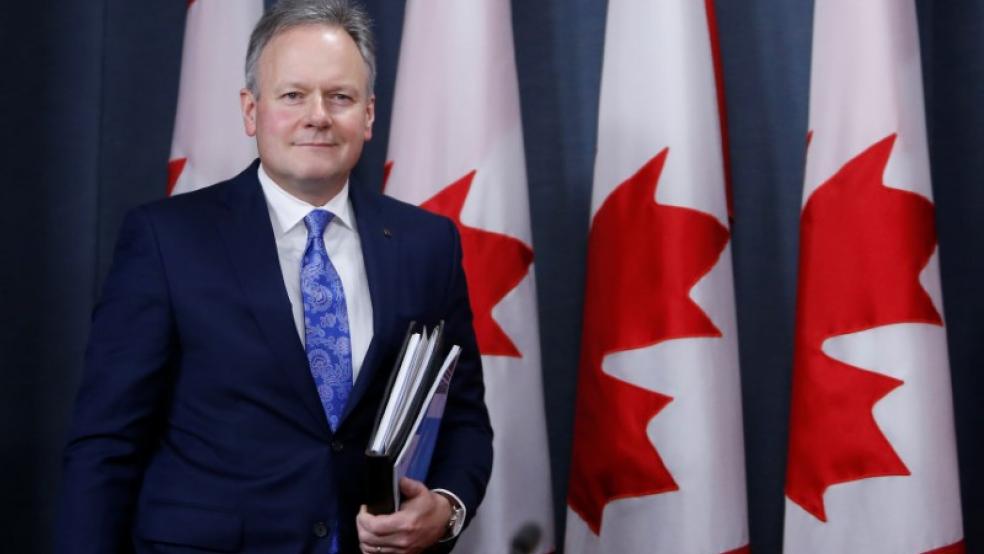TORONTO/OTTAWA (Reuters) - Expectations for the next Bank of Canada interest rate hike have been pushed back to the first quarter of 2018, according to a Reuters poll of primary dealers, who expect Britain's vote to leave the European Union to weigh on Canada's economy.
Primary dealers, the institutions that deal directly with the Bank of Canada at debt auctions, had previously expected a rate hike in the last quarter of 2017, according to a poll taken in late May.Canada's economy, pushed into a brief recession last year by weaker oil prices, was already struggling to gain momentum before the Brexit vote. Second-quarter growth is expected to be flat at best due partly to recent wildfires in Alberta.While the United Kingdom is a relatively small trading partner for Canada, the weaker global growth expected to result from Brexit is seen hurting demand for Canadian exports, especially commodities."(The) referendum really brings up the question of what does it mean for global growth going forward," said Bipan Rai, director of foreign exchange strategy at CIBC Capital Markets."It stands to reason that the Canadian economy could be facing some headwinds in the coming months."The median forecast of primary dealers is for the central bank to hike its main policy rate - now at 0.5 percent - in the first quarter of 2018.Six out of eight primary dealers polled expected the next move from the central bank to be a hike, while two saw a cut. RBC Capital Markets and Scotia Capital said they are reviewing their forecasts. A more dovish outlook for the central bank has also been reflected in overnight index swaps, which imply a nearly one-third chance of a rate cut this year after having been priced for no change in policy ahead of the Brexit vote.Bank of Canada head Stephen Poloz noted in a speech earlier this month that the outcome of the referendum posed a risk at the global level that could result in a shift in the central bank's view. Some bank economists have already lowered their growth outlook for Canada. Stefane Marion, chief economist at National Bank Financial, trimmed his forecast for 2017 growth by 0.2 percentage points to 1.7 percent and pushed his call for the central bank to raise rates back to the first quarter of 2018.TD Bank estimated the exit vote could shave about 0.5 to 1.0 percentage point off economic growth in Canada and the United States in the second half of the year."The protracted period of uncertainty ahead is I think going to be growth dampening and put a bid to safe-haven assets for an extended period of time," said Derek Holt, head of capital markets economics at Scotiabank. (Editing by Andrew Hay)Canada primary dealers push back rate hike forecast after Brexit

Chris Wattie



